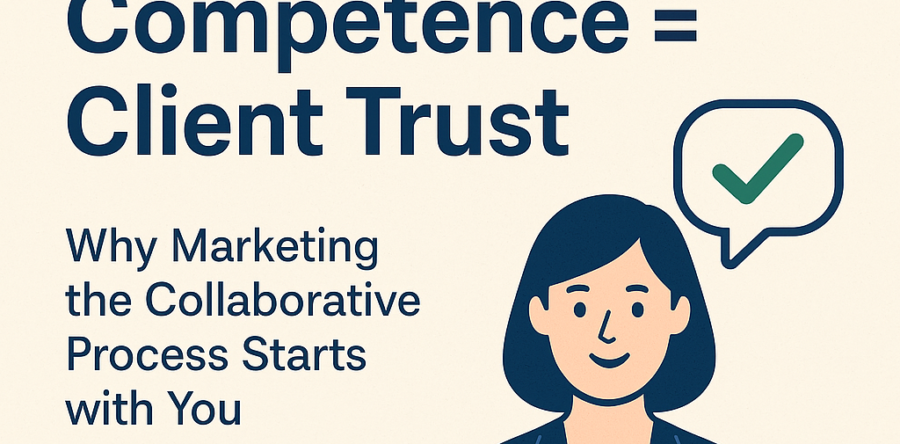When we think about “marketing” the Collaborative Process, it’s tempting to imagine websites, brochures, or social media posts. While those tools are certainly helpful, the most powerful marketing begins the moment a potential client hears your voice, sees your face, or reads your words. In fact, marketing the Collaborative Process doesn’t stop when the phone rings or the consultation is scheduled, it continues until the Participation Agreement is signed.
At the core of this marketing journey? Your confidence and competence.
Collaborative Practice is still unfamiliar territory for many clients. Most come to the table uncertain, anxious, and carrying cultural assumptions about what divorce “should” look like, often adversarial, court-based, and combative. When you present the Collaborative Process as a healthier, more respectful alternative, your confidence in that process must be unmistakable.
Clients can feel it if you're unsure. If you hesitate to explain how the process works, or if your language is tentative, you may unintentionally affirm their doubts. When you speak with clarity, warmth, and conviction, you begin to shift their perspective. You invite them into a new mindset, one grounded in dignity, mutual respect, and long-term family wellness.
Confidence without competence is just bravado. That’s why your ability to clearly articulate the Collaborative Process, its structure, roles, and benefits is equally critical. Prospective clients need to understand not only that it’s a better way, but that it’s a reliable, well-defined path with trained professionals guiding each step.
This requires fluency in the language of Collaborative Practice. You must be able to, explain the roles of each team member with ease. Describe how interest-based negotiation works. Set realistic expectations around time, cost, and emotional investment. Plus, address concerns about power imbalances, confidentiality, or the fear of “what if it doesn’t work?”. The more skillfully you educate, the more likely the client is to feel safe choosing this unfamiliar but promising path.
Each interaction either reinforces or erodes the client’s sense that they’ve made the right choice. Until that Participation Agreement is signed, they are still deciding whether they trust the process, and you, to get them where they need to go.
Confidence and competence aren’t personality traits. They’re professional commitments. Skills you build through training, mentorship, and experience. They are non-negotiable if you want to effectively market the Collaborative Process.
Ultimately, clients don’t choose Collaborative just because it’s an option. They choose it because you believed in it first and showed them why they should, too.



